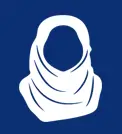Department of Computer science University of Gwadar

Introduction
The University of Gwadar’s Department of Computer Science is one of the predecessor departments, have been established in 2017 as an undergraduate program in conjunction with the campus’s opening. Computers and digital communication have become a fundamental component of the infrastructure of business, government, research, and even regular social contact as a result of the digital era. Scientists hold the keys to the next generation’s routine wonders, as the speed of innovation and technological growth accelerates. The University of Gwadar’s Department of Computer Science (CS) is well positioned to help those future intellectual leaders, entrepreneurs, thinkers, and innovators to succeed. The University of Gwadar, as an institution, ensures that its students have a life-changing experience. At the University of Gwadar, you can study computer science in a variety of ways to suit your needs. Whether you want an in-depth education in computer science’s conceptual foundations and complex software and hardware systems, an informed understanding of the aesthetic aspects of digital media design, expertise in the design and analysis of the complex networks that are reshaping our society, or to learn more about artificial intelligence, computer vision, control systems, dynamics, machine learning, or the programming that will produce tomorrow’s inn. At our departmental events, presentations by outstanding leaders in their fields add rigour, breadth, and relevance to the research and education experience. The University of Gwadar fosters an academic environment in which research and education are informed by one another. We invite you to join us at the Department of Computer Science, which is an exciting place to be.
Objective of the department
• To offer high-quality, all-encompassing educational
programs and services, as well as educational and
training opportunities that may be tailored to meet
changing demands.
• To give a solid foundation of information, skills, and
critical thinking abilities as well as to understand
and respect variety and differences.
• To connect basic principles to practical applications
and to prepare students for work in a variety of
settings or for further study and a profession
requiring knowledge and skills in information
technology.
Admission Criteria
• At least 50% marks in Intermediate (HSSC) examination with Mathematics or equivalent qualification with Mathematics, certified by IBCC
OR
• At least 50% marks in Intermediate (HSSC) examination with pre-Medical or equivalent qualification, certified by IBCC.
Fee Structure
| Sr. No | Detail of Charges | Amount |
|---|---|---|
| 1 | Admission Fee (One-time fee) | 2,000 |
| 2 | Tuition Fee | 9,000 |
| 3 | Security Money Refundable (Onetime fee) | 2,000 |
| 4 | Examination fee | 250 |
| 5 | Identity Card | 200 |
| 6 | Lab fee | 2,000 |
| 7 | Sports Fee | 250 |
| 8 | Transport Fee per semester | 250 |
| 9 | Library Fee | 250 |
| 10 | Total (First Semester Fee) | 16,200 |
| Fee per semester from 2nd to 8th | 12,200 |
Semester Wise Study Plan of BS in (Information Technology)
Tentative course offering plan for BS in (Information Technology) degree offered for Spring 2022 is given below in a semester wise format.
1st Semester (Credit Hours-18)
| Course Code | Course Title | Credit hours |
|---|---|---|
| MT-211 | Basic Mathematics -I | 3 |
| ICT-221 | Introduction to ICT | 2 |
| ICT-221L | Introduction to ICT Lab | 1 |
| SS-212 | Introduction to Logic (University Elective – I ) | 3 |
| EG-211 | English Composition & Comprehension | 3 |
| PHY-211 | Applied Physics | 3 |
| PHY-211L | Applied Physics Lab | 1 | HM-211 | Islamic Studies/ Ethics | 2 |
2nd Semester (Credit Hours-18)
| Course Code | Course Title | Credit hours |
|---|---|---|
| MT-111 | Basic Mathematics -II* | 3 |
| CS-221 | Programming Fundamentals | 3 |
| CS-221L | Programming Fundamentals Lab | 1 |
| EG-311 | Communication & Presentation Skills | 3 |
| MT-212 | Calculus & Analytical Geometry | 3 |
| CS-311 | Discrete Structures | 3 |
| HM-212 | Pakistan Studies | 2 |
3rd Semester (Credit Hours-17)
| Course Code | Course Title | Credit hours |
|---|---|---|
| CS-322 | Object Oriented Programming | 3 |
| CS-321L | Object Oriented Programming Lab | 1 |
| CS-312 | Software Engineering | 3 |
| CS-323 | Computer Networks | 3 |
| CS-323L | Computer Networks Lab | 1 |
| ST-211 | Probability & Statistics | 3 |
| MT-213 | Linear Algebra | 3 |
4th Semester (Credit Hours-17)
| Course Code | Course Title | Credit hours |
|---|---|---|
| CS-324 | Database Systems | 3 |
| CS-324L | Database Systems Lab | 1 |
| CS-321 | Data Structures & Algorithms | 3 |
| CS-321L | Data Structures & Algorithms Lab | 1 |
| SE-343 | Software Requirements Engineering | 3 |
| CS-313 | Information Security | 3 |
| SS-211 | Introduction to Sociology None 3 | 3 |
5th Semester (Credit Hours-17)
| Course Code | Course Title | Credit hours |
|---|---|---|
| IT-351 | Database Administration and Management | 3 |
| IT-351L | Database Administration and Management Lab | 1 |
| IT-311 | Information Technology Infrastructure | 3 |
| CS-325 | Operating Systems | 3 |
| CS-325L | Operating Systems Lab | 1 |
| SE-341 | Enterprise Systems | 3 |
| MG-211 | Principles of Accounting None 3 | 3 |
6th Semester (Credit Hours-17)
| Course Code | Course Title | Credit hours |
|---|---|---|
| EG-312 | Technical & Business Writing | 3 |
| CS-391 | Operations Research | 3 |
| IT-353 | Virtual Systems and Services | 3 |
| IT-353L | Virtual Systems and Services Lab | 1 |
| IT-352 | System and Network Administration | 3 |
| IT-352L | System and Network Administration | 1 |
| IT Elective – I | 3 |
7th Semester (Credit Hours-18)
| Course Code | Course Title | Credit hours |
|---|---|---|
| IT-471 | Final Year Project-I | 3 |
| IT-321 | Web Technologies CS-221 | 2 |
| T-321L | Web Technologies Lab | 1 |
| IT-312 IT | Project Management | 3 |
| IT-341 | Cyber Security | 3 |
| IT Elective – II | 3 | |
| IT Elective – III | 3 |
8th Semester (Credit Hours-17)
| Course Code | Course Title | Credit hours |
|---|---|---|
| IT-472 | Final Year Project-II | 3 |
| MG-213 | Entrepreneurship | 3 |
| HM-341 | Professional Practices | 3 |
| IT Elective – IV | 3 | |
| IT Elective – V | 3 |

